Digitalized Industry workshop: Exploring the Possibilities of Industry 5.0
By Salinee Santiteerakul on May 3rd, 2023
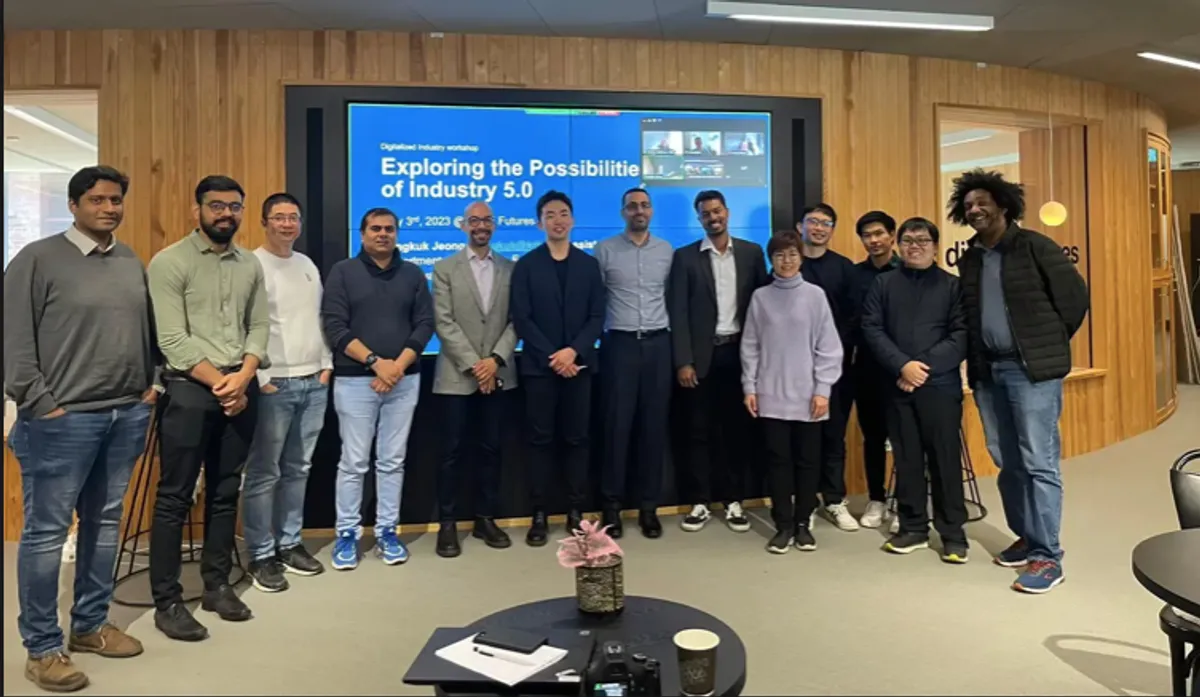
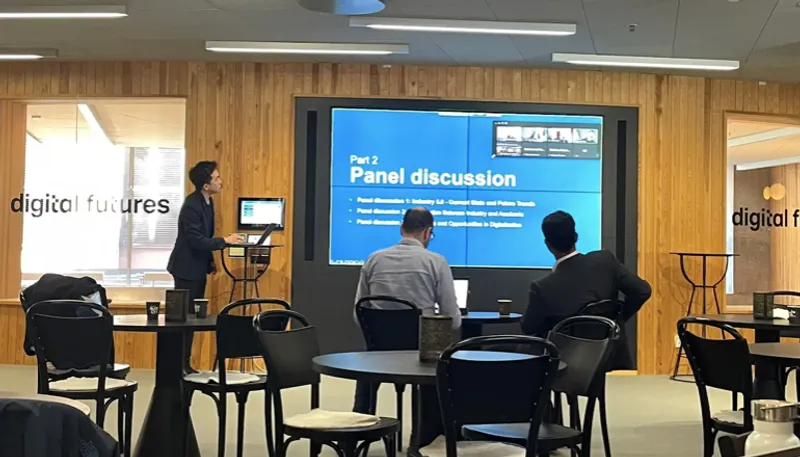
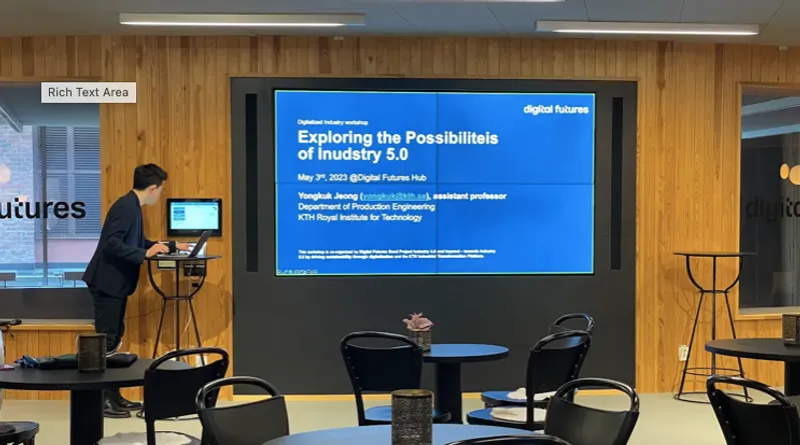
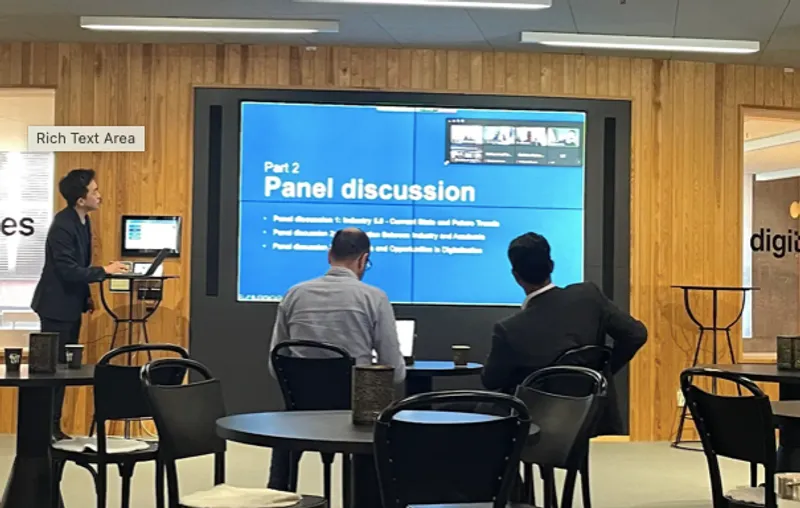
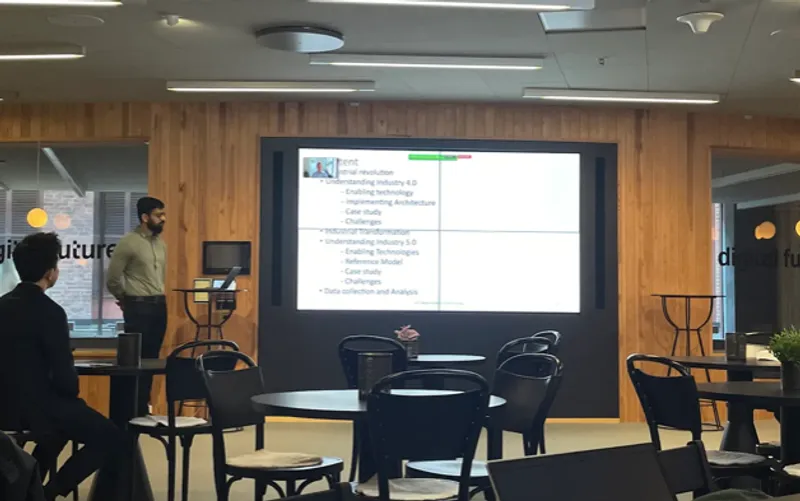
The Digitalized Industry workshop titled "Exploring the Possibilities of Industry 5.0" was organized to delve into the evolving landscape of digitalization in the industry, mainly focusing on the transition from Industry 4.0 to Industry 5.0. This transition marks a shift towards prioritizing the human factor in the context of digital technologies, aiming to create more meaningful and sustainable industries.
This workshop is co-organized by Digital Futures Seed Project Industry 4.0 and beyond – towards Industry 5.0 by driving sustainability through digitalization and the KTH Industrial Transformation Platform.
Panel Lists:
Maheshwaran Gopalakrishnan, Research Manager, Scania
Hassanein Sater, Senior Business Developer, AstraZeneca
Anna Sannö, Development Leader, Region Örebro län
Sandra Mattsson, Researcher, RISE
Ulf Weibahr, Head of Manufacturing Consulting Nordics, Wipro
Representatives from academia and industry
Objective:
The workshop aimed to explore the transition from Industry 4.0 to Industry 5.0, emphasizing the integration of digital technologies with a focus on human-centric and sustainable industrial practices.
Overview:
The event brought together experts from various sectors to discuss the evolving landscape of digitalization in the industry. The central theme was the transition to Industry 5.0, which emphasizes human factors and sustainability.
Key Highlights:
Expert Presentations: Insightful presentations from panelists provided a diverse perspective on the transition to Industry 5.0, highlighting the role of digitalization in driving sustainable practices.
Challenges and Opportunities: The discussions shed light on the challenges and opportunities in the shift towards Industry 5.0, offering a comprehensive view of the current industrial landscape.
Collaboration Opportunities: The event emphasized the importance of collaboration between academia and industry in leveraging digital technologies for a sustainable future.
Future Directions: Participants discussed future steps in integrating digital technologies across various industrial sectors.
Outcomes:
Enhanced understanding of the industrial practices required for the transition to Industry 5.0.
Recognition of the challenges and obstacles in this transition, as shared by industry experts.
Insights into current research directions and the potential for sustainable and human-centric industrial development.
Conclusion:
The Digitalized Industry Workshop provided valuable insights into the possibilities and challenges of Industry 5.0. The discussions and presentations highlighted the importance of sustainable and human-centric approaches in the era of digitalization, offering valuable guidance for the SME 5.0 Project.
(https://www.digitalfutures.kth.se/event/digitalized-industry-workshop-exploring-the-possibilities-of-industry-5-0/)